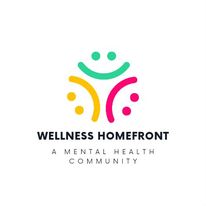From Self-Care to Community Care: The Ripple Effect of Wellness Practices
Wellness practices aren’t just about personal growth; they can also play a significant role in strengthening community bonds. When individuals engage in self-care and wellness activities, they often create a ripple effect that extends beyond their personal lives to impact their neighbors and broader local community. From organized group fitness classes to shared mindfulness workshops, these practices foster connections and create a supportive network. In this article, we’ll explore how prioritizing wellness not only benefits you but can also contribute to building a healthier, more connected community. Join us as we dive into practical ways to turn your self-care routine into a communal act of care.
The Power of Self-Care
Building Personal Resilience
Building personal resilience is at the core of effective self-care. Resilience allows you to bounce back from challenges, adapt to change, and maintain a positive outlook. Engaging in regular self-care activities like exercise, meditation, or hobbies can significantly boost your resilience. For instance, daily mindfulness practices can improve emotional regulation, making it easier to handle stress. Physical activities like jogging or yoga not only strengthen your body but also release endorphins, enhancing your mood and overall well-being. By prioritizing these practices, you build an inner strength that not only benefits you but also sets a positive example for those around you. As you become more resilient, you’re better equipped to support your community, creating a ripple effect of wellness and care.
Enhancing Emotional Well-being
Enhancing emotional well-being is another critical aspect of self-care that can profoundly impact your life and those around you. Emotional well-being involves understanding and managing your emotions, which contributes to a balanced and fulfilling life. Activities like journaling, engaging in creative arts, or simply spending time in nature can help you process emotions and reduce stress. For example, writing about your feelings can provide clarity and relief, making it easier to cope with daily pressures. Moreover, participating in group activities, such as book clubs or art classes, provides a sense of community and shared understanding. As you enhance your emotional well-being, you become more empathetic and supportive, fostering a positive atmosphere that benefits everyone in your community. This collective emotional health strengthens communal bonds and encourages a culture of mutual care and support.
Fostering Positive Habits
Fostering positive habits is essential for maintaining long-term well-being and can significantly influence those around you. Establishing routines such as regular exercise, balanced eating, and consistent sleep patterns can lead to sustained health benefits. These habits not only improve your physical and mental health but also serve as a model for others. For example, when your neighbors see you taking daily walks or preparing healthy meals, they may feel inspired to adopt similar practices. Sharing these habits through community events, like group fitness sessions or healthy cooking workshops, can further amplify their impact. By fostering positive habits, you’re not just improving your own life; you’re contributing to a culture of health and well-being within your community. This collective effort makes it easier for everyone to maintain these habits, creating a supportive environment where positive change is encouraged and sustained.
Extending Wellness to Community
Sharing Self-C care Practices
Sharing self-care practices is a powerful way to extend personal wellness to the broader community. When you share the techniques and routines that work for you, you provide valuable insights that can help others improve their own well-being. This can be done through informal conversations, social media, or organized community events. For instance, hosting a community yoga session or a mindfulness workshop can introduce these practices to people who might not have considered them before. Additionally, creating online groups where individuals can share their experiences and tips can foster a sense of belonging and mutual support. By openly discussing and sharing your self-care practices, you promote a culture of wellness and encourage others to take steps towards their own health. This collective approach not only enhances individual well-being but also strengthens community bonds, making everyone feel more connected and supported.
Creating Support Networks
Creating support networks is crucial for extending wellness practices to the community. Support networks provide a foundation of mutual care, where individuals can share their experiences, offer advice, and lend emotional support. These networks can take various forms, such as neighborhood groups, online forums, or local clubs focused on wellness activities. For example, forming a walking group in your neighborhood can encourage regular physical activity and foster social connections. Additionally, online support groups for mental health or nutrition can offer a safe space for sharing and learning. By establishing these networks, you create an environment where people feel valued and understood, which is essential for sustained well-being. Support networks also facilitate the exchange of resources and information, making it easier for everyone to access the tools they need for their wellness journey. Ultimately, these networks strengthen the community by promoting a culture of collective care and support.
Promoting Collective Well-being
Promoting collective well-being involves taking intentional steps to enhance the health and happiness of the entire community. This can be achieved through various initiatives, such as organizing community events, providing access to wellness resources, and encouraging inclusive participation. For example, arranging free fitness classes in a local park or setting up a community garden can provide accessible ways for everyone to engage in healthy activities. Moreover, advocating for mental health awareness and support services can help reduce stigma and ensure that individuals have the help they need. Promoting collective well-being also means fostering an environment of inclusivity where everyone feels welcome and valued. By prioritizing the well-being of the community as a whole, you create a supportive atmosphere that benefits everyone. This collective approach not only improves individual health but also strengthens community bonds, making your local area a better place to live for all.








